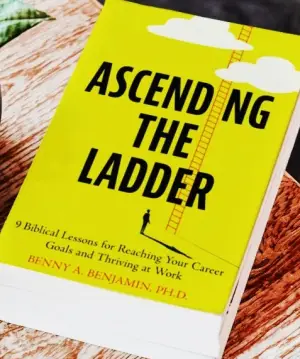Dive into "The Perfectionist’s Handbook": A Journey from Self-Criticism to Self-Acceptance
I never considered myself a perfectionist—until the endless to-do lists and relentless self-scrutiny led me to a point of exhaustion. So, when I came across "The Perfectionist’s Handbook: Take Risks, Invite Criticism, and Make the Most of Your Mistakes" by clinical psychologist Jeff Szymanski, I felt a spark of recognition. This book promised to unravel the paradox of wanting to excel yet feeling shackled by self-imposed standards, and I couldn’t resist diving in.
Szymanski’s approach is refreshingly approachable. He tactfully navigates the intricate landscape of perfectionism, offering strategies that distinguish between productive and detrimental tendencies. One of the most striking themes is the notion that perfectionism isn’t inherently good or bad; it exists along a continuum. This realization was enlightening for me. Rather than harshly labeling myself as "imperfect," I learned that my perfectionist tendencies could actually be harnessed to fuel my goals rather than hinder them.
The book is structured in a way that fuses anecdotes with practical advice, making it both relatable and actionable. Szymanski outlines specific strategies to help combat harmful perfectionism—like embracing mistakes as growth opportunities. A memorable takeaway for me was his emphasis on creating a "Top 10" list—prioritizing what truly matters to enhance focus and fulfillment. This technique has since redefined my daily structure and mind-set, allowing me to tackle projects with a clearer vision and alleviate my instinct toward obsessive detail.
Szymanski’s writing style feels like sitting down with a supportive friend. It’s warm and engaging, complemented by real-life examples that illustrate his points effectively. For instance, he shares a particularly relatable story of a physician who realized her pursuit of flawlessness was undermining her capabilities both professionally and personally. It resonated deeply, as I found myself reflecting on how my perfectionist tendencies might be affecting relationships with friends and family.
There’s a timeless wisdom in Szymanski’s approach, particularly in how he encourages readers to invite criticism rather than shy away from it. This shift in perspective is liberating and, perhaps counterintuitive, yet it’s something many of us sorely need to embrace. As noted in a glowing review, one reader mentioned, “It distinguishes between helpful and hurtful perfectionism,” a sentiment that echoes throughout the book and has bolstered my understanding of self-imposed limitations.
However, it’s worth noting that some might find Szymanski’s insights a bit simplistic, particularly if they’ve delved deeply into psychological theories before. Yet for those of us seeking clarity amidst chaos, this straightforward approach offers a balm to high-anxiety states and performance pressure.
In conclusion, "The Perfectionist’s Handbook" is a valuable read for anyone grappling with the intricacies of self-expectation in today’s demanding world. It’s not just for the fraught perfectionist; it serves well for anyone looking to find a healthier relationship with ambition and self-criticism. As I closed the final page, I felt lighter and more equipped to navigate my perfectionism as an ally rather than an adversary. This book is an invitation to a more balanced life—a journey well worth embarking on.






